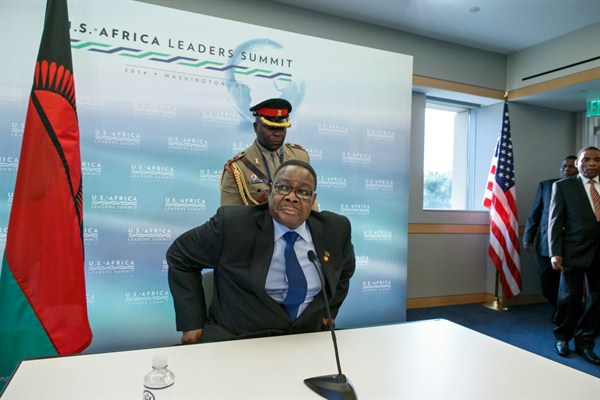Malawi’s next presidential election is still nearly a year away, yet the incumbent, Peter Mutharika, is already facing potential challenges from unlikely corners. Recent indications that former President Joyce Banda as well as Saulos Chilima, Mutharika’s own vice president, may mount bids for the country’s top office, combined with a spate of protests against persistent corruption and economic stagnation, underscore widespread disappointment with Mutharika’s record so far. But any opposition candidates will have a tough time defeating the incumbent at the ballot box, which means Malawian voters have every reason to be skeptical that genuine reforms addressing their country’s most vexing governance problems are on the immediate horizon.
Perhaps the most remarkable political development of recent months is Banda’s return to Malawian soil after four years in self-imposed exile, during which she steered clear of the political fray in her home country.
Banda served as vice president under Bingu wa Mutharika, the current president’s older brother, and assumed the presidency after he died of a heart attack in 2012. Though there was early optimism about how she would govern, the following year her term became all but consumed by the so-called Cashgate scandal, in which government officials used various methods, including manipulating state software programs, to pilfer more than $250 million in public funds, according to some estimates. In fairness, the theft began long before Banda was sworn in. But it was nevertheless discovered on her watch, prompting donor governments to suspend their support to her administration.

